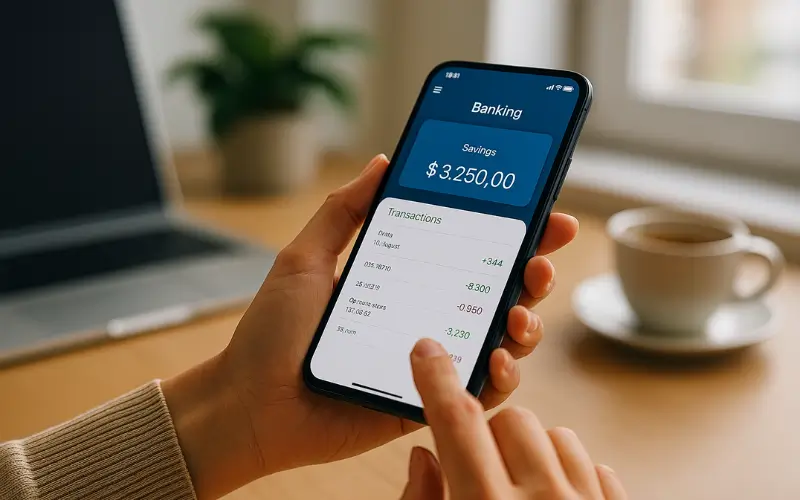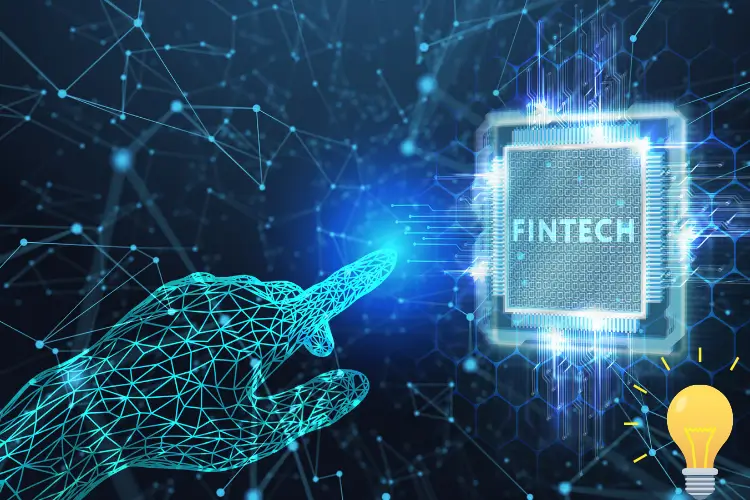Have you ever been stuck in line at the bank behind someone who’s convinced this is the perfect time to chat with the teller about the weather, their cat, and every transaction they’ve made since 2002? Yeah. Meanwhile, your lunch break is ticking away, your phone is buzzing with work emails, and all you wanted was to transfer money or check your balance. Frustrating, right?
Traditional banking demands your time and your patience, sometimes more than you’re willing to give. Plus, there’s always that lurking worry about security. Is your money safe? Can you trust that your data won’t end up somewhere it shouldn’t? That’s why mobile banking security is such a huge deal in the conversation right now. Here’s why it’s the future of banking.
Your Proof of Funds Bank Statement Without the Paper Chase
Let’s start with something specific. Ever had to show a proof of funds bank statement for a big transaction? Maybe you were buying property, applying for a visa, or securing a business deal. Traditionally, that meant booking an appointment, printing out a bunch of papers, and sometimes even waiting for a manager’s signature.
With mobile banking, that entire headache disappears. You can generate and download the statement right from your phone, often in seconds. Need it in PDF format to send to your lawyer or agent? Done. Need a stamped, official version? Many mobile apps now allow you to request a verified digital copy that’s accepted by most institutions. And you can do all of that while sitting in your pajamas at 10 p.m. or during a layover at the airport.
What’s even better is the level of transparency you get. Instead of flipping through paper pages and highlighting amounts yourself, the app can filter transactions, highlight balances, and present exactly what you need — no extra fluff. It’s a small example, but it shows how mobile banking isn’t just about convenience; it’s about cutting out unnecessary steps and giving you control.
When you can prove your financial standing in minutes, you’re not just more efficient; you’re more confident in your own money management. That changes how you negotiate, how you invest, and how you make decisions.
Banking Without Borders
One of the most underrated benefits of mobile banking is how it erases geographical limitations. You could be in Nairobi, New York, or Naples and still manage your accounts like you’re sitting at home. Need to transfer money to a friend in another country? You don’t have to worry about banking hours or international wire forms — it’s literally a few taps away.
For expats, freelancers, or digital nomads, this is huge. No more hunting for a local branch or dealing with outdated transfer systems. And if you’ve ever tried explaining to a bank teller why you need to move money from a Kenyan account to a European investment portfolio, you know the pain of blank stares and slow processes. Mobile apps, especially those that integrate multi-currency features, just… skip the drama.
There’s also the real-time aspect. Instead of sending money and crossing your fingers for two to five business days, you can track the transfer’s progress right from your phone. You’ll know when it’s pending, when it’s in progress, and when it’s done.
Security That Travels With You
I know, I know — every time the topic of mobile banking comes up, someone raises the “but is it safe?” flag. It’s a fair question. We live in a world where data breaches make headlines, and being cautious with your money is smart. But here’s the twist: mobile banking security has advanced so much that, in some cases, it’s safer than using a physical card or logging in on a desktop.
Biometric authentication (your face, your fingerprint), two-factor authentication, instant transaction alerts — all these features mean that even if someone got hold of your phone, getting into your banking app would be nearly impossible. And unlike a stolen wallet, you can lock down a mobile app in seconds.
Plus, mobile banks are constantly updating their systems. Every software update you install is often closing potential loopholes hackers could exploit. The best part? You don’t have to understand all the technical details. You just have to use the security features available to you, and you’re already ahead of the game.
Control Over Your Money, Anytime
Remember when “checking your balance” meant finding the nearest ATM? Or when sending a payment meant filling out a paper form and waiting for a teller to stamp it? Those days are gone. Mobile banking gives you immediate access to every part of your account — balances, transactions, transfers, bill payments, loan applications — without any middleman.
The more you see your financial activity in real time, the better you can make decisions. You can catch suspicious charges before they snowball. You can spot spending patterns you didn’t notice before. You can move money between accounts in seconds to avoid overdrafts or to take advantage of a good investment opportunity.
Once you’ve gotten used to having your entire financial world in your pocket, going back to paper statements and bank queues feels absurd.
The Shift Is Already Here
The truth is, mobile banking isn’t “the future” — it’s the present. The shift has already happened. Banks are investing more in their apps than in physical branches. People are opening accounts without ever walking into a building. Businesses are approving payments and issuing invoices on their phones.
The Bottom Line
The way we interact with money has changed forever, and that’s a good thing. You’re no longer tied to a specific location, a specific time, or a specific process just to manage your funds. You’ve got proof-of-funds statements at your fingertips, cross-border transfers in minutes, security that moves with you, and the kind of control that was unthinkable a decade ago. So maybe the better question isn’t, “Is mobile banking the future?” It’s, “Why haven’t you switched yet?”




